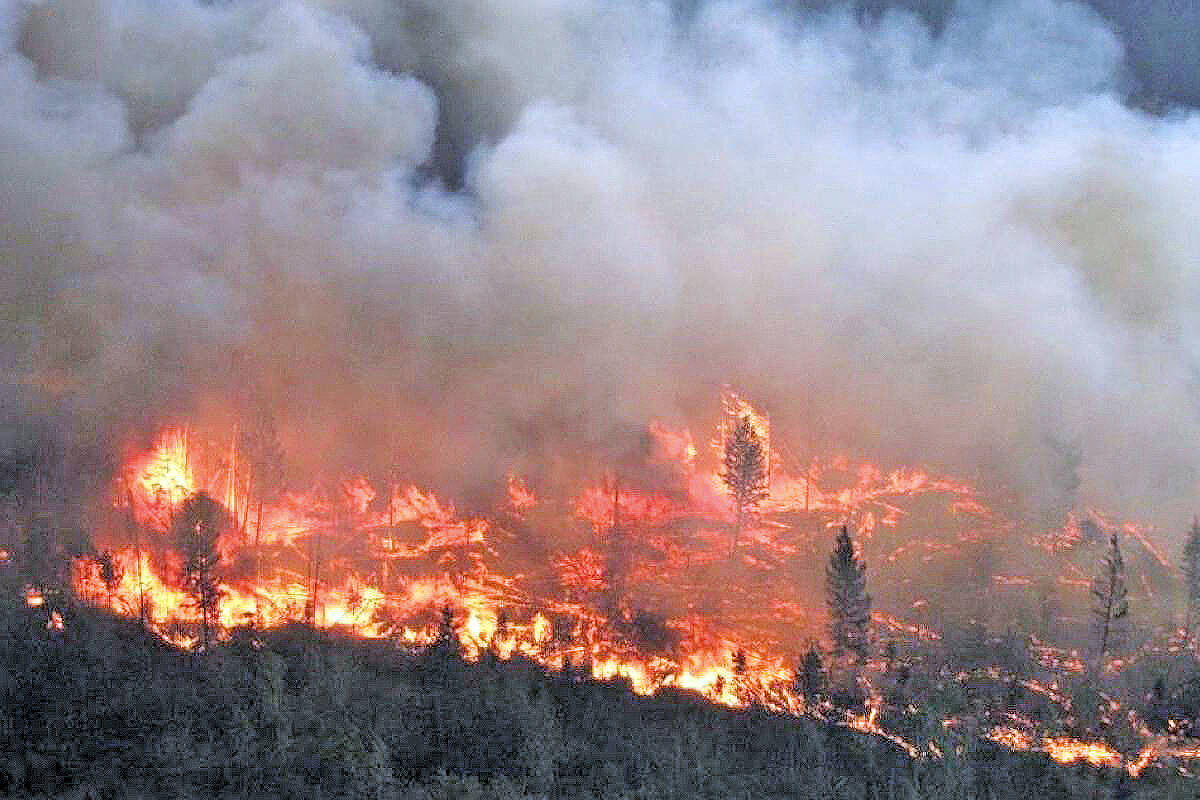It’s been a remarkably slow start to the wildfire season for B.C., but warmer weather through July and August will likely bring increased fire activity.
At a news briefing on Thursday (July 7), B.C. Wildfire Service lead forecaster, Matt MacDonald said that as of July 4, there have only been 217 fire starts — about half of normal. There have been 2,748 hectares burned, which is less than 10 per cent of the 20 year average. The slow start was largely due to colder and wetter weather through June in the southern half of the province.
The Northwest fire centre is currently the biggest area of concern for fire activity, as it has been the driest region of the province. MacDonald said the wildfire service is focusing on the area north of Prince George, as well as Liard and Fort Nelson. The situation has been exacerbated by lightning strikes — 11 new fires were sparked by lightning in the Northwest fire centre recently.
READ MORE: Lightning storms spark dozens of wildfires in Yukon, heat warning issued
B.C. experienced 60,427 lightning strikes, which is slightly above the 20-year average of 59,000. MacDonald said a persistent snowpack covering ridgetops helped reduce lightning ignitions. The average number of lightning-caused fires in June is 111, but this year there were 30.
Fire conditions can change quickly. It only takes three to five days of warm, dry, windy weather for fuel to build up and lead to more aggressive fire behaviour.
Warmer summer weather will come to B.C. in July and last throughout August. Long-range forecasts call for a return to seasonal temperatures come September.
“As we move forward through the latter half of July our success is estimated to continue to be high in the southern portions of the province simply owing to the slow fire behaviour,” MacDonald said. “In the north, really it will depend on a quick response time and successful initial attack.”
@SchislerCole
cole.schisler@bpdigital.ca
Like us on Facebook and follow us on Twitter.

